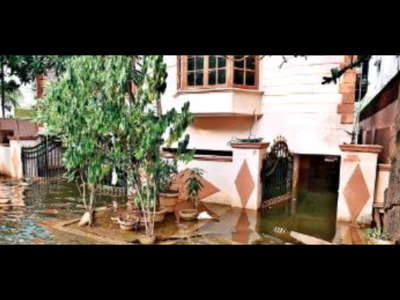The Times of India 06.08.2010
Shivaji Park wins parking battle against BMC
MUMBAI: Shivaji Park residents have a reason to rejoice. The Bombay high court on Thursday banned the entry of vehicles and parking on the sprawling ground. Hearing a public interest litigation filed by residents, a division bench of Chief Justice Mohit Shah and Justice S C Dharmadhikari directed the BMC to ensure that private vehicles and trucks were not allowed into the ground, except for maintenance works.
The judges asked the authorities to explain why the area had not been declared a silence zone yet, despite the court’s orders in May.
The PIL claimed that Shivaji Park, which was essentially meant for sports-related activities, was now being used to hold various programmes.
The Maharashtra Regional Town Planning Act allows reserved playgrounds to be used for functions of national importance and religious programmes for a maximum of 30 days in a year. Senior advocate Virag Tulzapurkar pointed out that last year, the sprawling grounds were out of bounds for residents and sports-persons for around 165 days. The grounds hosted various functions ranging from Dussehra programmes to mango, orange and even vada pav festivals.
The civic body had supposedly barred organisers from bringing vehicles into the ground or using the premises for commercial activities. However, advocate Tulzapurkar furnished photographs, highlighting violations with vehicles being parked in the ground and stalls being set up during functions. The problem was compounded during the monsoon, said Tulzapurkar.
The court said there was a need to strike a balance. “There are two Indias -rural and urban. We need to harmonise the two,” said the Chief Justice, while directing the BMC to furnish a list of programmes that it has slotted for 30 days this year.
The judges have asked the civic body to explain the blatant flouting of rules. The court has also sought answers from the Maharashtra government, which had demanded that Shivaji Park be reserved for for 15-17 days prior to Republic Day and Maharashtra Day.
The corporation’s lawyer told the court that the decision is pending with the Union government. The HC has asked for affidavits to be filed in four weeks.
The judges asked the authorities to explain why the area had not been declared a silence zone yet, despite the court’s orders in May.
The PIL claimed that Shivaji Park, which was essentially meant for sports-related activities, was now being used to hold various programmes.
The Maharashtra Regional Town Planning Act allows reserved playgrounds to be used for functions of national importance and religious programmes for a maximum of 30 days in a year. Senior advocate Virag Tulzapurkar pointed out that last year, the sprawling grounds were out of bounds for residents and sports-persons for around 165 days. The grounds hosted various functions ranging from Dussehra programmes to mango, orange and even vada pav festivals.
The civic body had supposedly barred organisers from bringing vehicles into the ground or using the premises for commercial activities. However, advocate Tulzapurkar furnished photographs, highlighting violations with vehicles being parked in the ground and stalls being set up during functions. The problem was compounded during the monsoon, said Tulzapurkar.
The court said there was a need to strike a balance. “There are two Indias -rural and urban. We need to harmonise the two,” said the Chief Justice, while directing the BMC to furnish a list of programmes that it has slotted for 30 days this year.
The judges have asked the civic body to explain the blatant flouting of rules. The court has also sought answers from the Maharashtra government, which had demanded that Shivaji Park be reserved for for 15-17 days prior to Republic Day and Maharashtra Day.
The corporation’s lawyer told the court that the decision is pending with the Union government. The HC has asked for affidavits to be filed in four weeks.


